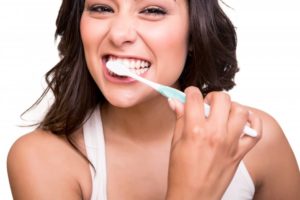 It’s fantastic to learn that more people are brushing and flossing regularly, seeing their dentist, and paying more attention to their oral health overall compared to 50 years ago. However, your dentist in Hamden stills sees patients on a daily basis who don’t follow what’s recommended for optimal oral health.
It’s fantastic to learn that more people are brushing and flossing regularly, seeing their dentist, and paying more attention to their oral health overall compared to 50 years ago. However, your dentist in Hamden stills sees patients on a daily basis who don’t follow what’s recommended for optimal oral health.
That’s why he offers these three tips to take your oral care to the next level. The next time you think about caring for your oral health, give them a try!
Flossing Once a Day
It’s unfortunate, but no toothbrush is capable of reaching the deep pockets of your gums, nor the sides of teeth. The surfaces are easy to reach, therefore plaque is easy to remove. Brushing your tongue is simple, straightforward, and a great way to reduce bad breath. But flossing is the only way to remove all plaque from your mouth and truly avoid decay and developing gum disease. In fact, the sides of teeth make up about 40 percent of your smile overall, so failing to floss allows 40 percent of dental plaque to continue developing.
By flossing just once a day, you can avoid tartar buildup, cavities, bad breath, and yellow stains on teeth. If you struggle to floss, floss picks and holders are an effective way to clean the hard-to-reach areas of teeth and gums. They also come in unique flavors to give you an extra mint aftertaste, reminding you of an oral care routine well-done.
Seeing the Dentist Regularly
It’s not uncommon for patients, whether they be individuals or families, to skip dental visits multiple years at a time. Some patients even believe that they don’t need to visit regularly if they practice sufficient care at home. However, at-home care isn’t enough to reach areas only your dentist can reach, especially considering his tools and materials can’t be easily bought in stores.
More importantly, oral health has been directly linked to overall health. This means your dentist is capable of catching systemic disease when he sees markers that appear in the mouth. For example, he can catch the early signs of cardiovascular disease, uncontrolled diabetes, malnutrition, osteoporosis, acid reflux, and other conditions you may have never been aware of otherwise.
Brushing Before Bed
Finally, your dentist knows how easy it is to skip your brushing routine after a long day. But did you know that your mouth is actually more vulnerable when you’re asleep than when you’re out and about? This is because the mouth dries out as you sleep, making it easier for bacteria to multiply and spread to other areas. It’s the same reason why your dentist also recommends flossing before bed. Furthermore, you’re not able to drink fluids, chew gum, or eat foods that promote oral health, making you even more vulnerable.
Have more questions on improving your oral self-care and habits? Schedule an appointment with your dentist today!
About the Author
Dr. Robert M. Pantera earned his dental degree from the University of Connecticut School of Dental Medicine. He’s seen patients with a variety of dental problems, but that didn’t stop him from helping them restore their oral health and improve their at-home care. To learn more about his practice, contact him through his website.






